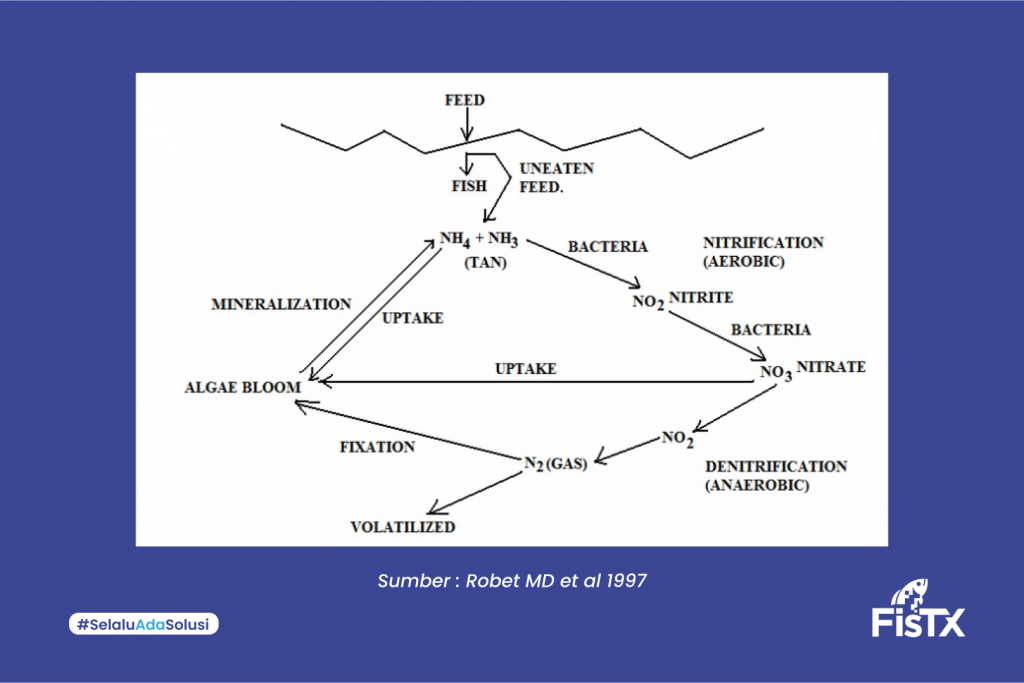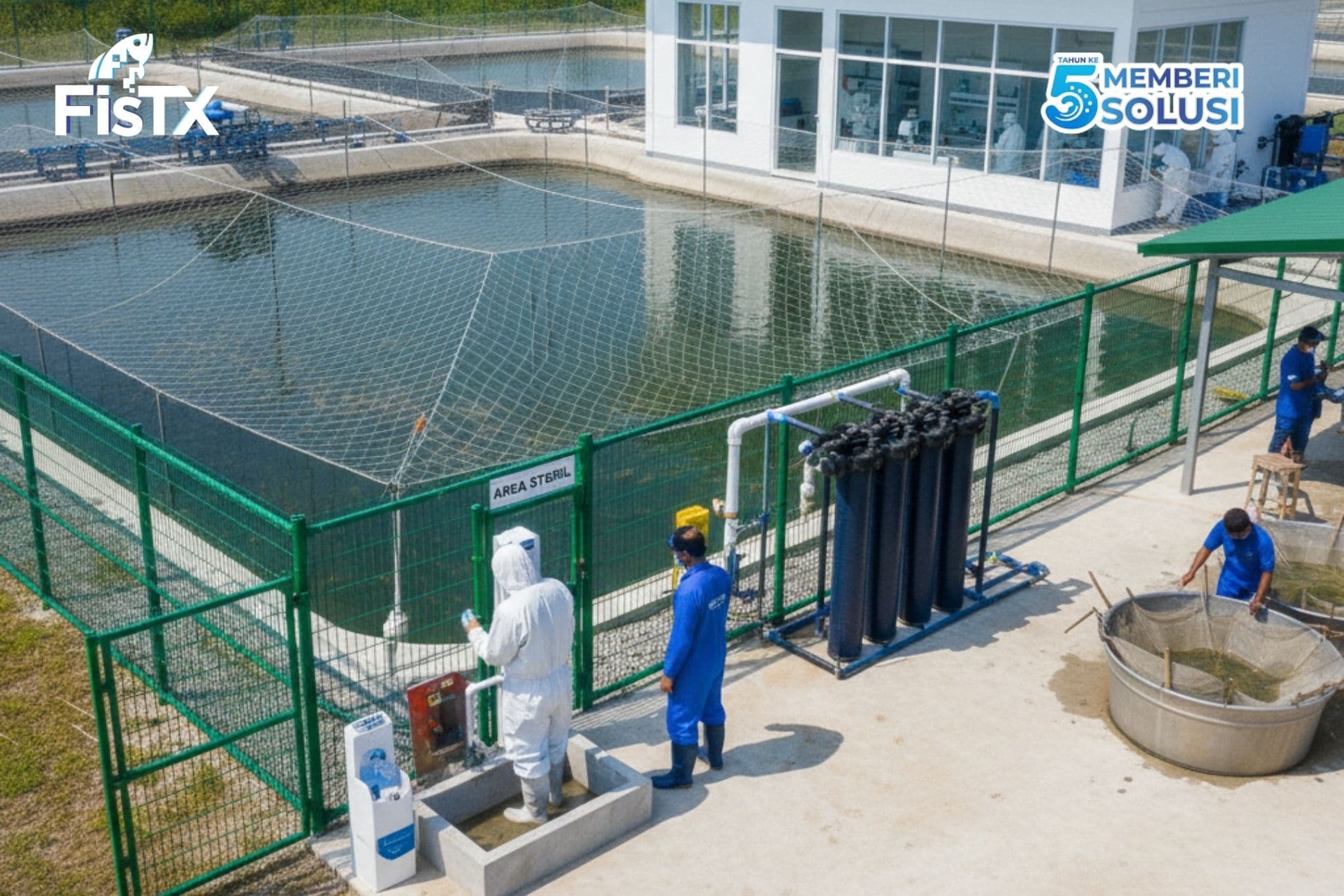
Reducing Ammonia in Shrimp Cultivation with Nitrifying Bacteria
Shrimp ponds are one type of fisheries business that requires good environmental management for optimal shrimp production. One common problem faced in shrimp pond management is high levels of ammonia in the water, which can be detrimental to shrimp growth and health. One of the causes of high ammonia levels is the inhibition of the nitrogen cycle in the water. The nitrogen cycle involves various organisms in the water that carry out nitrification processes on ammonia.
Why Does the Nitrification Process Fail?
Nitrification is a biochemical process in which bacteria convert ammonia into less harmful nitrite and nitrate compounds for shrimp and other aquatic organisms. However, sometimes this nitrification process does not function optimally in shrimp ponds. This can be due to various factors such as a low population of nitrifying bacteria, poor water quality, or other environmental factors.

The low presence of nitrifying bacteria in the water can disrupt the breakdown of NH3 into NO2 and NO3. Thus, the inhibition of the nitrification process can result in high ammonia levels.
Causing High Ammonia Levels
High levels of ammonia in shrimp pond water can have a negative impact on shrimp health and growth. Dissolved ammonia in water can cause oxidative stress on shrimp, damage gill tissues, and even lead to death if not properly addressed. Therefore, it is important to control ammonia levels in shrimp ponds to ensure optimal shrimp growth and production.
Adding Nitrifying Bacteria to Water
One effective way to address high ammonia levels in shrimp ponds is by adding bacteria to the water, such as Nitrosomonas. These bacteria will help enhance the nitrification process by oxidizing ammonia into safer nitrite and nitrate compounds.
With the proper addition of nitrifying bacteria, ammonia levels in pond water can be controlled more effectively, thus maintaining shrimp health and increasing overall pond productivity. Therefore, the use of bacteria is an important strategy in sustainable and productive shrimp pond management.

If you have issues with shrimp cultivation, consult with FisTx for FREE. Contact us for more information!


